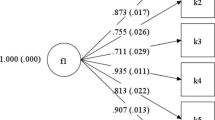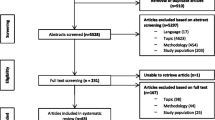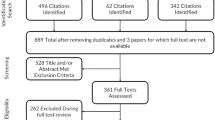Abstract
Objective: To adapt and evaluate the unweighted version of the London Handicap Scale (LHS) for use in Sweden. Materials & Methods: Respondent burden, linguistic validity and patient perceived relevance was assessed in 16 neurologically ill patients. Internal consistency reliability and construct validity were evaluated among 89 stroke survivors six months after discharge. Results: Patients perceived the LHS as relevant and easy to understand and complete. Mean time to complete the questionnaire was 10 min. Cronbach’s alpha reliability was 0.85. The LHS differentiated between patients living at home and in special accommodations. As expected, scores correlated strongly and weakly with indices of related and more remote constructs, respectively. There were no floor-, but large ceiling effects. Conclusions: The observations reported here are in accordance with previous studies using the original British LHS and provide initial support for the reliability and validity of the instrument for use in Sweden. However, ceiling effects may limit its usefulness as an outcome measure.
Similar content being viewed by others
Abbreviations
- ADL:
-
activities of daily living
- ADLs:
-
ADL-staircase
- CI:
-
Confidence interval
- ICF:
-
International Classification of Functioning, Disability and Health
- ICIDH:
-
International Classification of Impairment, Disability and Handicap
- IQR:
-
interquartile range
- LHS:
-
London Handicap Scale
- MCS:
-
mental component summary score
- PCS:
-
physical component summary score
- SD:
-
standard deviation
- SF-12:
-
12-item Short Form Health Survey
References
(1980). International Classification of Impairments, Disabilities and Handicaps: A Manual of Classification Relating to the Consequences of Disease. World Health Organization, Geneva
(1994). Handicap one year after stroke: validity of a new scale. J Neurol Neurosurg Psychiatry 57: 825–829
(1994). Measuring handicap: motives, methods and a model. Qual Health Care 3: 53–57
(1994). Measuring handicap: the London Handicap Scale, a new outcome measure for chronic disease. Qual Health Care 3: 11–16
(2002). International Classification of Functioning, Disability and Health. World Health Organization, Geneva
(2002). International classification of functioning, disability and health: an introduction and discussion of its potential impact on rehabilitation services and research. J Rehabil Med 34: 201–204
(2003). Measuring participation according to the International Classfication of Functioning, Disability and Health (ICF). Disabil Rehabil 25: 577–587
(2002). Team approach versus ad hoc health services for young people with physical disabilities: a retrospective cohort study. Lancet 360: 1280–1286
(2005). How does stroke restrict participation in long-term post-stroke survivors?. Acta Neurol Scand 112: 157–162
(2001). Cross-cultural validation of the London Handicap Scale in Hong Kong Chinese. Clin Rehab 15: 177–185
Pajalic Z, Karlsson S, Westergren A. Functioning and subjective health among stroke survivors after discharge from hospital. J Adv Nurs; in press
(1996). Longitudinal studies of dependence in daily life activities among elderly persons. Scand J Rehabil Med Suppl 34: 1–35
(2000). The London handicap scale: a re-evaluation of its validity using standard scoring and simple summation. J Neurol Neurosurg Psychiatry 68: 365–367
(1996). A 12-item Short-Form Health Survey: construction of scales and preliminary tests of reliability and validity. Med Care 34: 220–233
(2004). Integrating patient-reported outcomes. Value Health 7: S9–S12
(1995). Health Measurement Scales: A Practical Guide to their Development and Use. Oxford University Press, Oxford
(1997). Performance of a new, HIV/AIDS-targeted quality of life (HAT-QoL) instrument in asymptomatic seropostivie individuals. Qual Life Res 6: 561–571
(1994). Individual-patient monitoring in clinical practice: are available health status surveys adequate?. Qual Life Res 4(4): 293–307
(2000). Criteria for assessing the tools of disability outcomes research. Arch Phys Med Rehabil 81: S15–S20
(2001). Psychometric properties of the Impact on Participation and Autonomy Questionnaire. Arch Phys Med Rehabil 82: 210–216
(1998). Evaluating patient-based outcome measures for use in clinical trials. Health Technol Assess 2: 1–74
(2002). Assessing health status and quality-of-life instruments: attributes and review criteria. Qual Life Res 11: 193–205
(2003). Are the ICF activity and participation dimensions distinct?. J Rehabil Med 35: 145–149
(2002). Quality of life measures after stroke. Uses and abuses of the SF-36. Stroke 33: 1348–1356
(2004). Function and disability in late life: comparison of the Late-Life Function and Disability Instrument to the Short-Form-36 and the London Handicap Scale. Disabil Rehabil 26(6): 362–370
(1996 Sep). Handicap in inflammatory arthritis. Br J Rheumatol 35(9): 891–897
(2000). A comparison of the responsiveness of the Nottingham extended activities of daily living, London handicap scale and SF-36. Disabil Rehabil 22(17): 786–793
Author information
Authors and Affiliations
Corresponding author
Rights and permissions
About this article
Cite this article
Westergren, A., Hagell, P. Initial validation of the Swedish version of the London Handicap Scale. Qual Life Res 15, 1251–1256 (2006). https://doi.org/10.1007/s11136-006-0054-4
Accepted:
Published:
Issue Date:
DOI: https://doi.org/10.1007/s11136-006-0054-4




